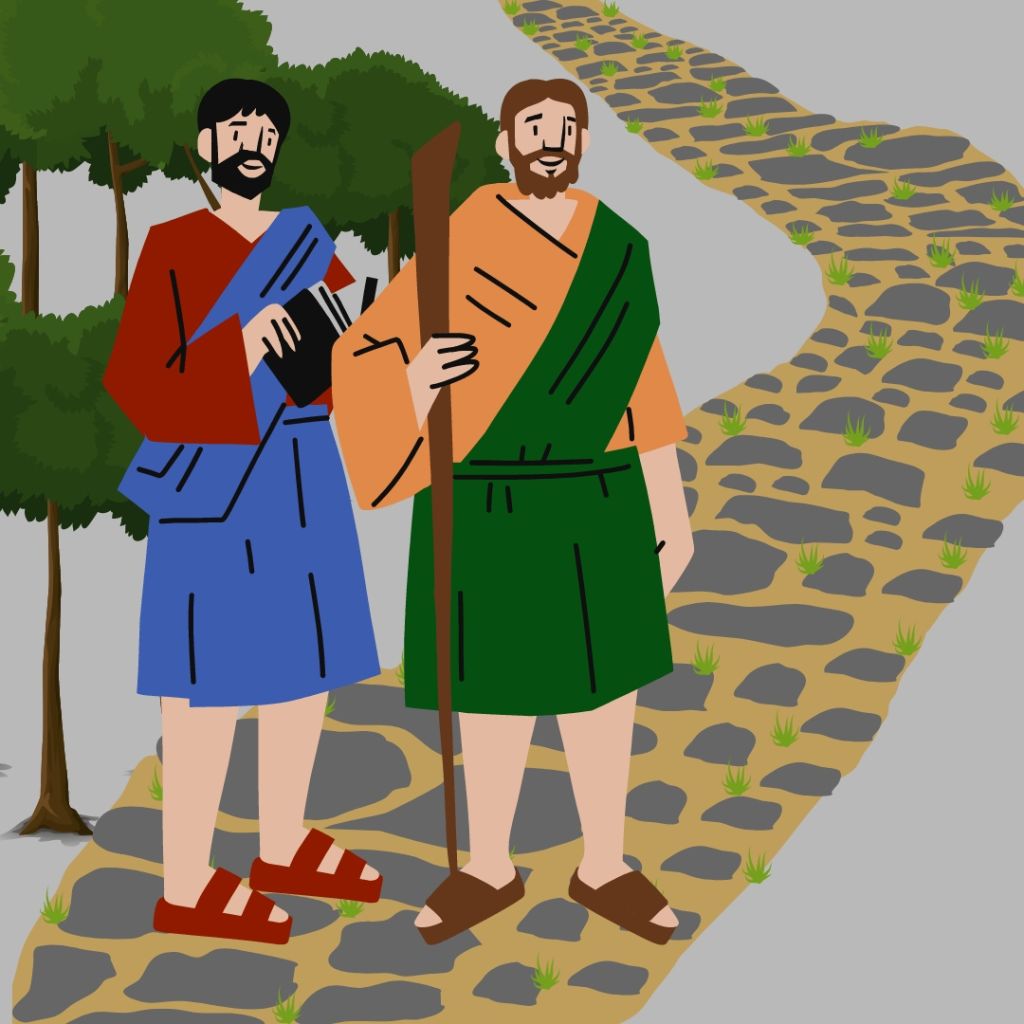Having written about Demas, John Mark and Silas over the past three weeks, there has to be one more missionary from the pages of the New Testament who calls out for our attention, Timothy, especially as we look at his relationship with the apostle Paul. They were missionaries together, but more than anything else the relationship between the apostle Paul and Timothy as a spiritual father and son stands out. The letters of Paul refer to Timothy as his “true son in the faith” (1 Tim 1:2), revealing their deep personal and spiritual connection.
Paul first encountered Timothy in Lystra during his second missionary journey in Acts 16:1-3. This followed Paul’s Acts 15 bust up with Barnabas over John Mark’s desertion on the Acts 13 first missionary journey, so he set out on his second journey without Barnabas and John Mark but with Silas. Timothy was a young believer, with a Jewish mother and Greek father. Paul took Timothy under his wing and invited him to join his missionary team. Interestingly, no explanation of why Paul did that is recorded. Given the John Mark events, for Paul to take another young man with him, Timothy was an interesting decision.
Their relationship as spiritual father and son was based on mentorship. Paul invested time in training and equipping Timothy for Christian leadership and ministry. He provided Timothy with guidance, encouragement, and correction. 1 and 2 Timothy are addressed directly to Timothy and provide instructions and encouragement for his work as a missionary pastor and church leader.
But it was more than a classroom school of missions. They journeyed in mission together, they walked and worked together. Timothy accompanied Paul on his missionary journeys and in Philippians, Colossians, 1 and 2 Thessalonians Timothy is referred to as co-author or co-sender alongside Paul.
Then collaboration morphed into delegation. Paul entrusted Timothy with important responsibilities, such as overseeing the church in Ephesus. In 1 and 2 Corinthians Timothy is also mentioned as having been sent by Paul to the church in Corinth.
Later on there was a clear succession policy. As Paul neared the end of his life, he saw Timothy as a successor whom he could trust to continue the work of the gospel after he was gone (2 Tim 2:2).
It is worth noticing some specific areas in this mentoring relationship.
1. Biblical truth was hugely central in Paul’s training. He taught Timothy to preserve and pass on sound doctrine (2 Tim 2:2). The Pastoral Epistles show Paul training Timothy to teach others and confront false teachers and impure doctrine. The Ephesian church was being threatened by false teachers spreading unbiblical teachings and controversies (1 Tim 1:3-7, 6:3-5). Timothy was tasked with confronting these false teachers and ensuring the church remained grounded in sound Biblical truth. He was to refute the myths and endless genealogies being spread in the church (1 Tim 1:4). Timothy was to teach “what is in accord with sound doctrine” (1 Tim 1:10)
2. Timothy was encouraged to live a godly life that matched the doctrine, to be an example of godliness and to walk in the truths he taught (1 Tim 4:6, 2 Tim 3:14)
3. Timothy was trained to confront moral and ethical Issues. 1 and 2 Timothy address problems like greed, materialism, and immoral behaviour within the church (1 Tim 6:3-10, 2 Tim 3:1-5). Timothy had to provide clear moral leadership and discipline to address these problems.
4. Generational Tensions. There were challenges in how older and younger members of the church should relate to each other (1 Tim 5:1-2, 4:12). Timothy had to navigate these age-related dynamics as a relatively young leader himself.
5. Perseverance in Ministry. Timothy faced opposition and discouragement in his pastoral work (2 Tim 1:6-8, 4:5). Paul urged him to remain steadfast, to endure suffering and to continue preaching the gospel faithfully.
6. Church Administration and Leadership. As the overseer of the church, Timothy had to deal with practical matters like appointing qualified elders and deacons (1 Tim 3:1-13). He had to exercise wise judgment in leading the church.
7. Timothy was to delegate to and train others. Paul told Timothy to entrust the gospel message to “reliable people who will also be qualified to teach others” (2 Tim 2:2). This would ensure the church’s teaching and leadership would continue after Paul and Timothy.
All in all, Paul took an unknown young man in Acts 16 in Lystra and invested in him in such a way as to raise him up to be an early church leader. Isn’t that one of the ultimate tests of missionary work? When I go, will the work continue? Paul surely got that one right! Should we not apply that “P/T (Paul/Timothy) test” to any church or mission work?



